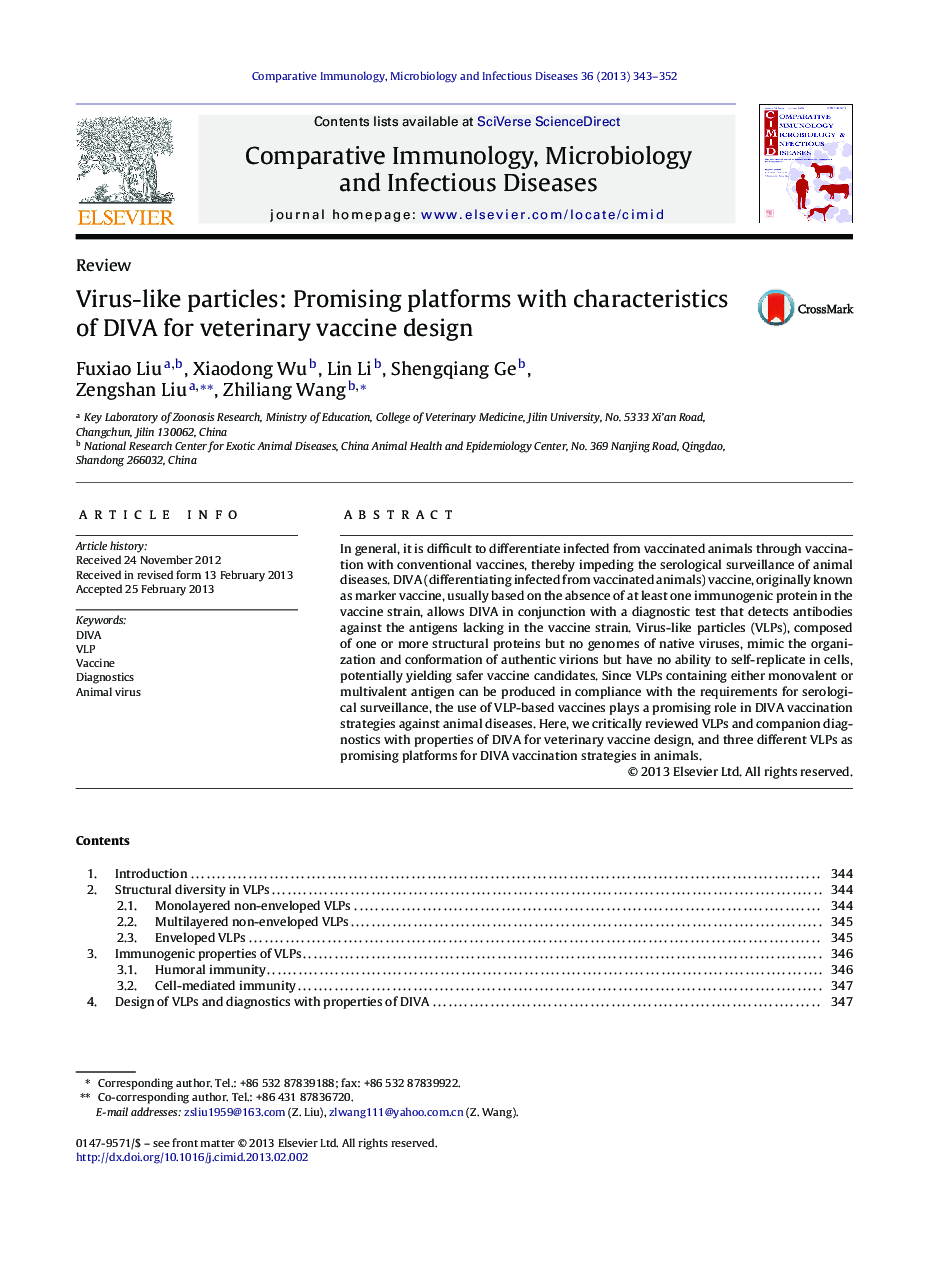| Article ID | Journal | Published Year | Pages | File Type |
|---|---|---|---|---|
| 2428286 | Comparative Immunology, Microbiology and Infectious Diseases | 2013 | 10 Pages |
In general, it is difficult to differentiate infected from vaccinated animals through vaccination with conventional vaccines, thereby impeding the serological surveillance of animal diseases. DIVA (differentiating infected from vaccinated animals) vaccine, originally known as marker vaccine, usually based on the absence of at least one immunogenic protein in the vaccine strain, allows DIVA in conjunction with a diagnostic test that detects antibodies against the antigens lacking in the vaccine strain. Virus-like particles (VLPs), composed of one or more structural proteins but no genomes of native viruses, mimic the organization and conformation of authentic virions but have no ability to self-replicate in cells, potentially yielding safer vaccine candidates. Since VLPs containing either monovalent or multivalent antigen can be produced in compliance with the requirements for serological surveillance, the use of VLP-based vaccines plays a promising role in DIVA vaccination strategies against animal diseases. Here, we critically reviewed VLPs and companion diagnostics with properties of DIVA for veterinary vaccine design, and three different VLPs as promising platforms for DIVA vaccination strategies in animals.
